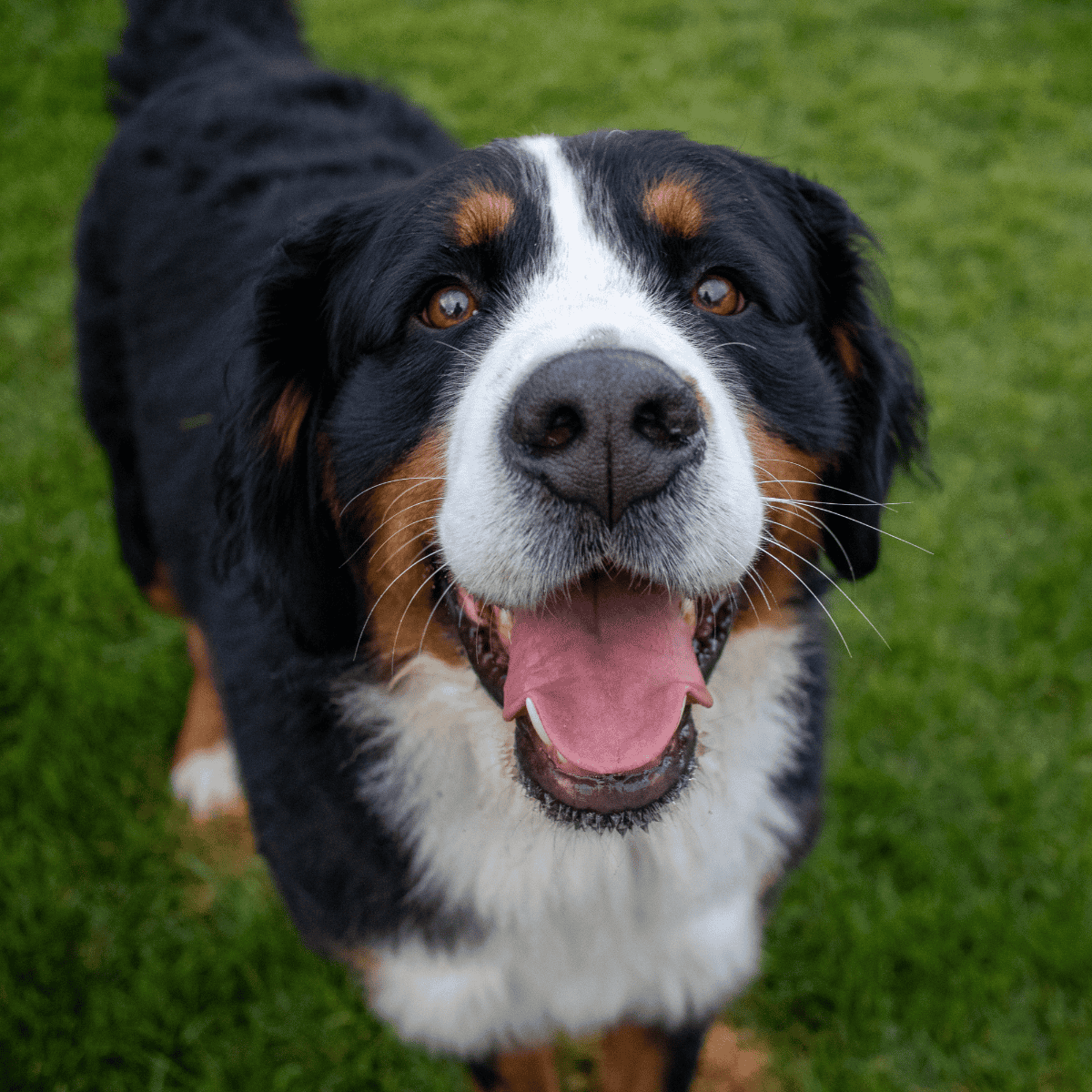
Bernese Mountain Dog
Shortcuts
The Bernese Mountain Dog is a majestic and gentle breed known for its striking tri-colored coat and large, sturdy build. Originating from the Swiss Alps, these dogs were historically bred as working dogs, prized for their strength and versatility. Today, they are cherished family companions, renowned for their friendly disposition and loyalty.
Despite their imposing size, Bernese Mountain Dogs are not aggressive and maintain a dignified demeanor around strangers. Their thick, silky coats and intelligent eyes add to their visual appeal. These hardworking, loyal companions are beloved family members, offering a perfect blend of strength and affection.
Breed Overview

Height
23 – 27.5 inches
Weight
70 – 115 pounds
Lifespan
7 – 10 years
Colors
Tricolor (black, rust, and white)
Suitable for
Big dog lovers and those seeking an intimidating yet gentle companion.
Temperament
Easygoing, affectionate, loyal, reserved


Height
23 – 27.5 inches
Weight
70 – 115 pounds
Lifespan
7 – 10 years
Colors
Tricolor (black, rust, and white)
Suitable for
Big dog lovers and those seeking an intimidating yet gentle companion.
Temperament
Easygoing, affectionate, loyal, reserved

The Bernese Mountain Dog, known for its striking tri-color coat, originates from the Swiss Alps. These large, gentle giants are renowned for their friendly and affectionate nature.
Characteristics
Energy

Health

Sociability

Trainability

Lifespan


Enjoying this read?
We publish this content for free to generate interest in our Premium members' area. By subscribing, you can ask the writer any questions related to pet care and this article, get access to 100+ Premium Pet Care Guides and go Ad-Free with DogFix Premium for $2.99.
Health Conditions
Bernese Mountain Dogs face several health issues, some of which can be serious. These dogs often have a relatively short lifespan and are prone to various conditions.
Minor Conditions
- Entropion
- Ectropion
- Progressive Retinal Atrophy
- Cataracts
- Sub-aortic Stenosis (SAS)
- Allergies
Serious Conditions
- Cancer
- Hip dysplasia
- Elbow dysplasia
- Arthritis
- Von Willebrand disease
- Gastric torsion
- Aseptic meningitis
- Osteochondrosis
- Heat stroke
- Hypothyroidism

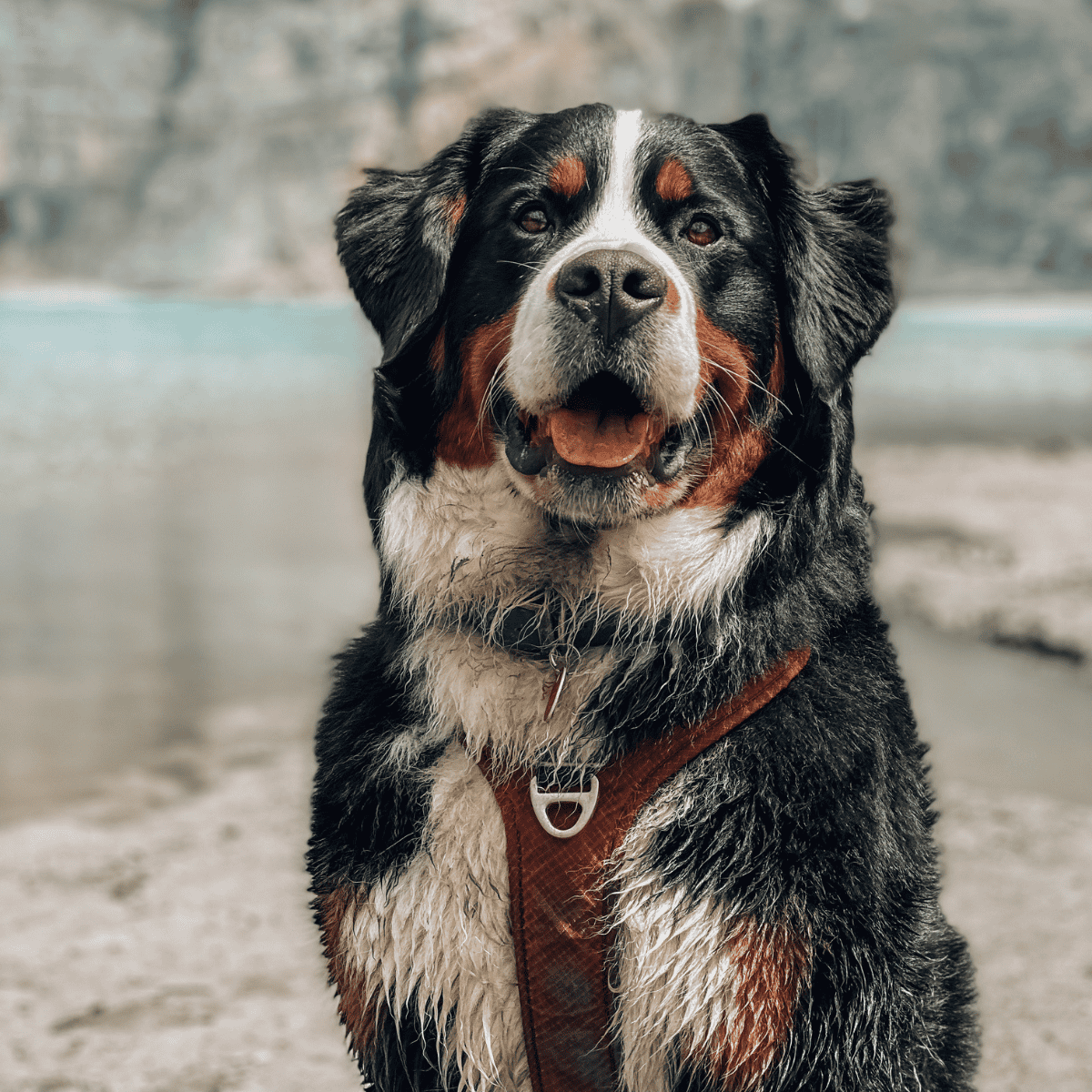
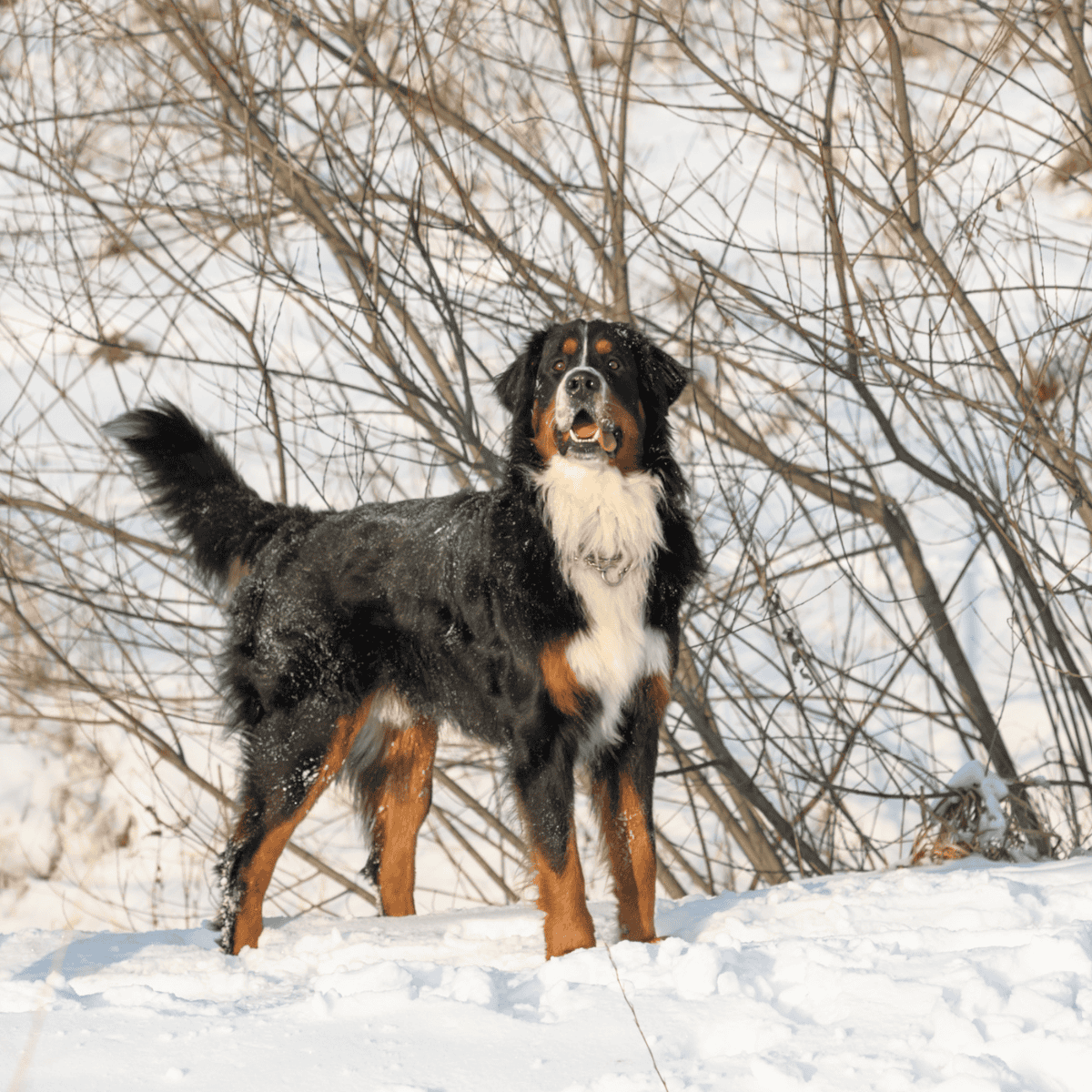
Bernese Mountain Dog Puppies
Bernese Mountain Dog puppies charm with their fluffy fur and expressive eyes. They respond well to positive reinforcement, benefiting from a nurturing approach to develop their friendly nature. These puppies have a moderate energy level and sport thick, tri-colored fur, making regular grooming essential to prevent matting.
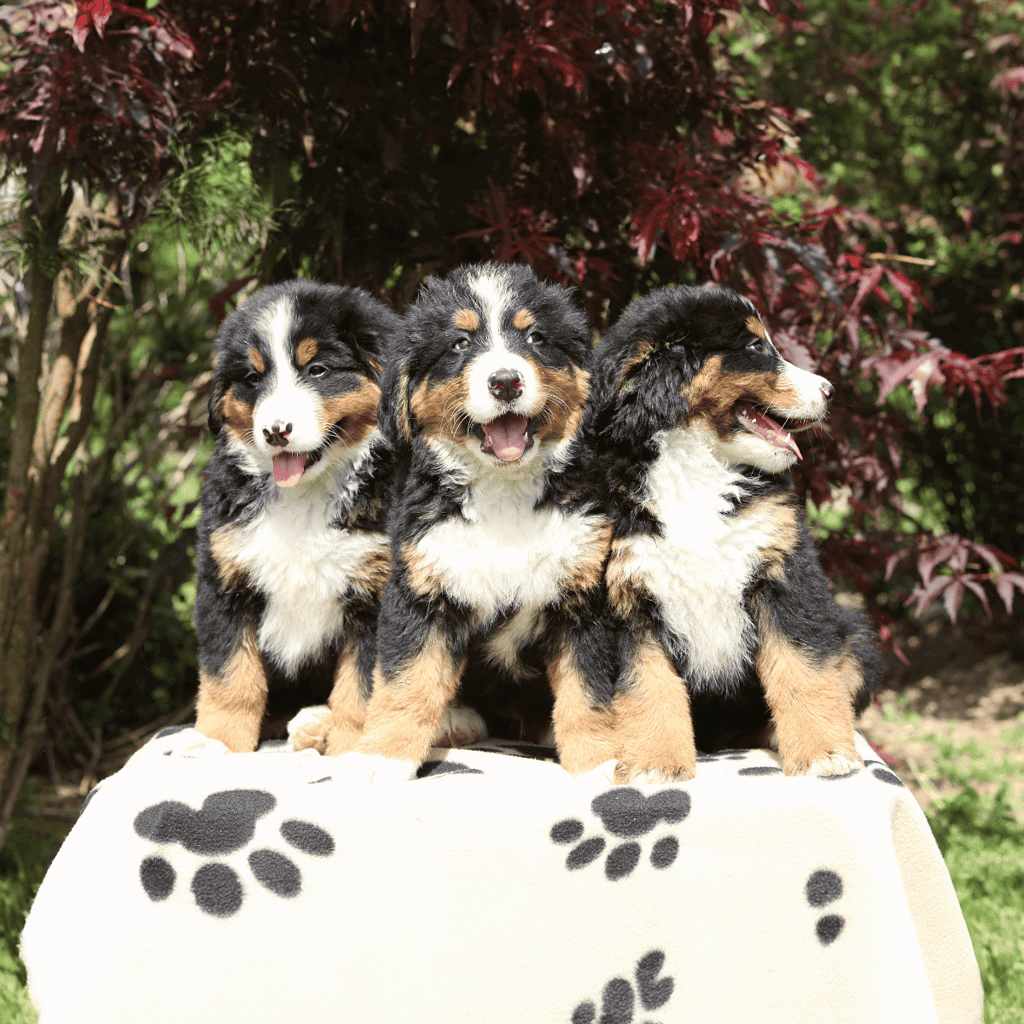
Health monitoring is vital for these prone-to-genetic-conditions dogs, and regular vet visits are recommended. A diet of high-quality food for large breeds, combined with ample playtime and short walks, supports their rapid first-year growth.
Temperament & Intelligence Of The Bernese Mountain Dog
The Bernese Mountain Dog is a gentle, affectionate breed that cherishes family interaction and forms strong bonds despite its intimidating size. It is non-aggressive, preferring to cuddle, yet can be a protective guardian when necessary. Training and socialization are vital to maintaining its amiable nature, preventing past traumas from influencing its behavior, and ensuring it matures into a well-behaved adult.
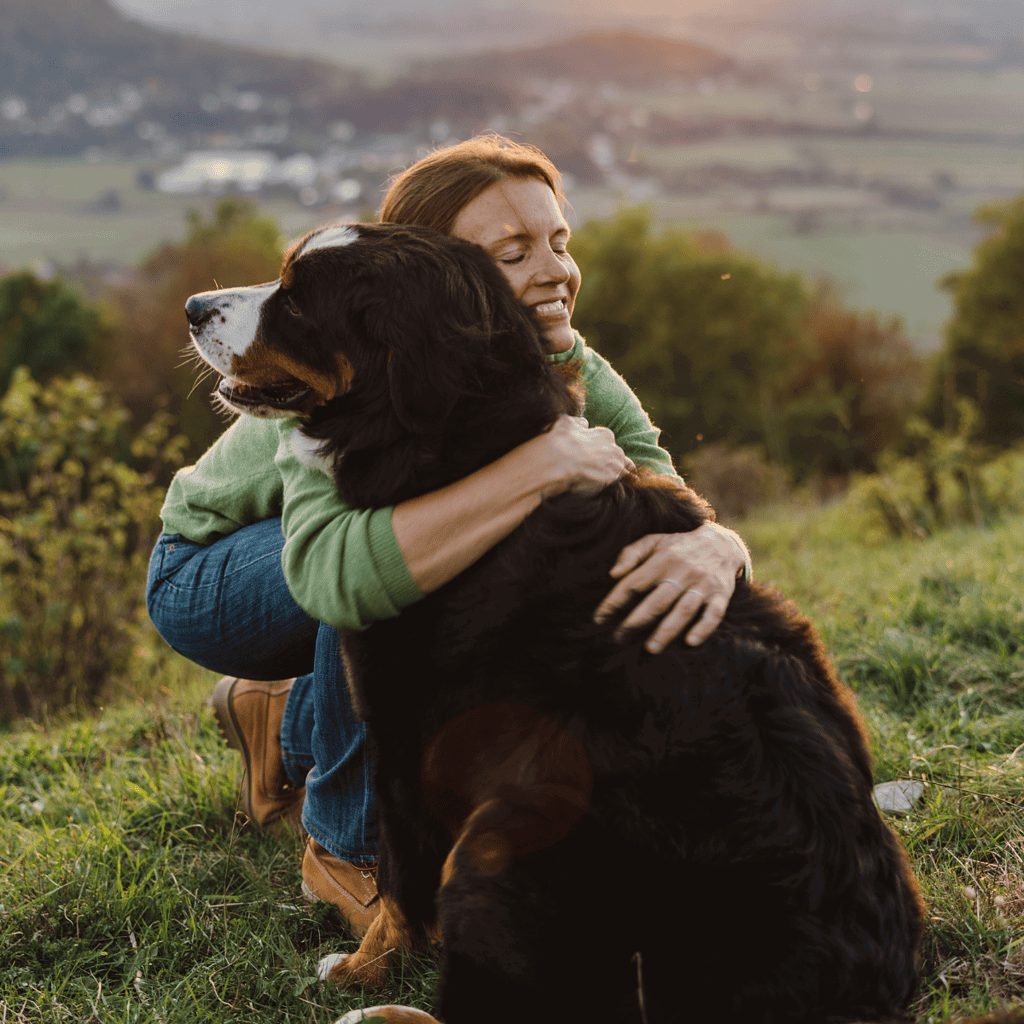
Highly intelligent and trainable, Bernese Mountain Dogs excel in learning tasks and commands, benefiting from their versatile abilities. Although they mature slowly, retaining playful behavior into adulthood, their ability to follow commands and perform tasks improves as they age, showcasing a balance between playfulness and obedience.
Are These Dogs Good For Families?
Bernese Mountain Dogs are excellent family pets due to their calm nature, which makes them great around children. Their friendly and affectionate nature makes them great companions for children and adults alike. They are known for their gentle temperament, often displaying patience and playfulness, which allows them to bond well with kids. This breed thrives on social interaction and enjoys being part of family activities, making them a loving addition to any household.
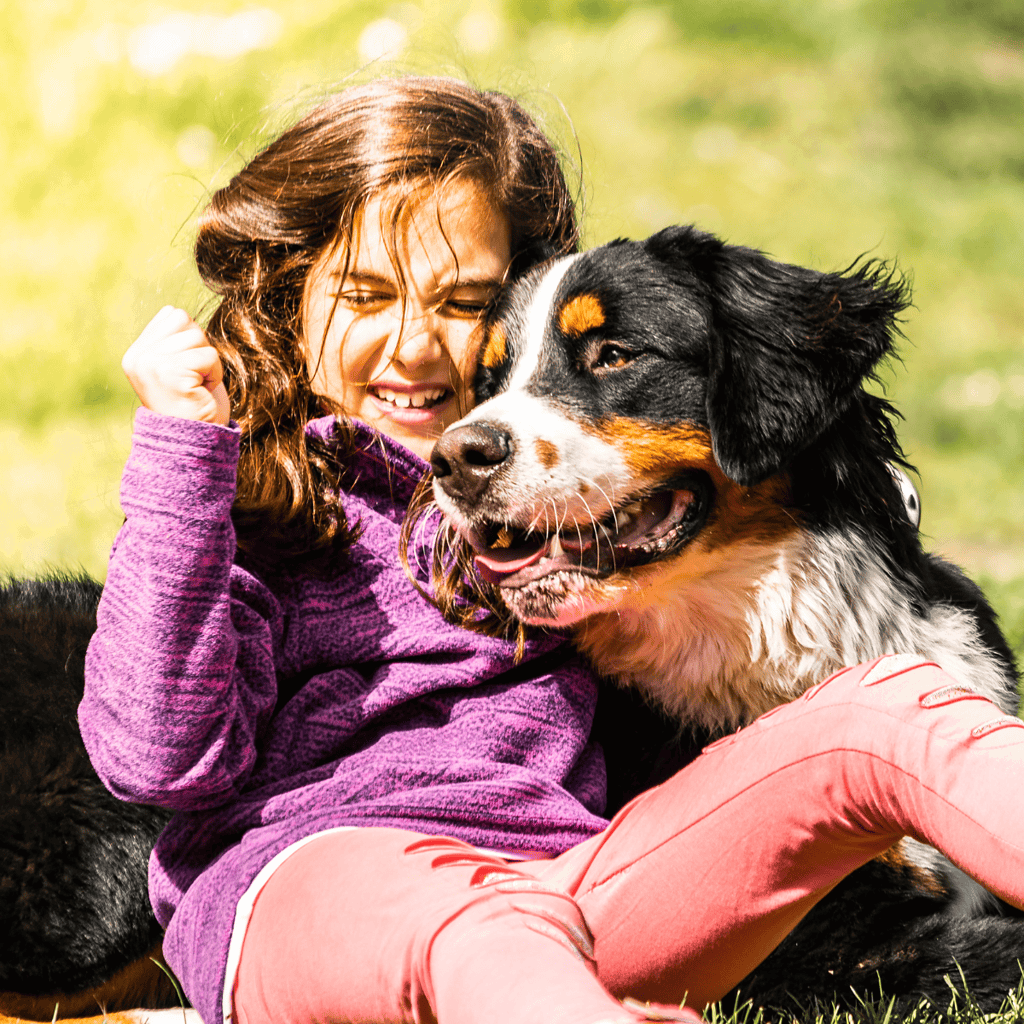
However, it’s important to note that their large size and energetic disposition require proper training and supervision, especially around young children. Regular exercise and mental stimulation are essential to keep them happy and well-behaved. With the right environment and care, Bernese Mountain Dogs can bring joy and warmth to family life, creating lasting memories for everyone.
Does This Breed Get Along With Other Pets?
Bernese Mountain Dogs are known for their gentle nature, making them compatible with other pets. They tend to get along with dogs when socialized early, and introductions should be supervised. Peaceful coexistence with cats is common, especially if raised together, supported by the dog’s calmness.

Introducing new pets requires careful and slow processes to ensure positive interactions. Early socialization and consistent training are crucial for these dogs to interact well with other animals. Supervised first meetings and positive reinforcement in neutral spaces are essential for successful integration.
Food & Diet Requirements
Bernese Mountain Dogs need a balanced diet with high-quality dry kibble to avoid obesity and maintain health. Protein, fats, carbohydrates, and vitamins are crucial for their diet. Puppies and adults have different serving sizes to support growth and maintain weight. Treats should be limited, and fresh water is essential.
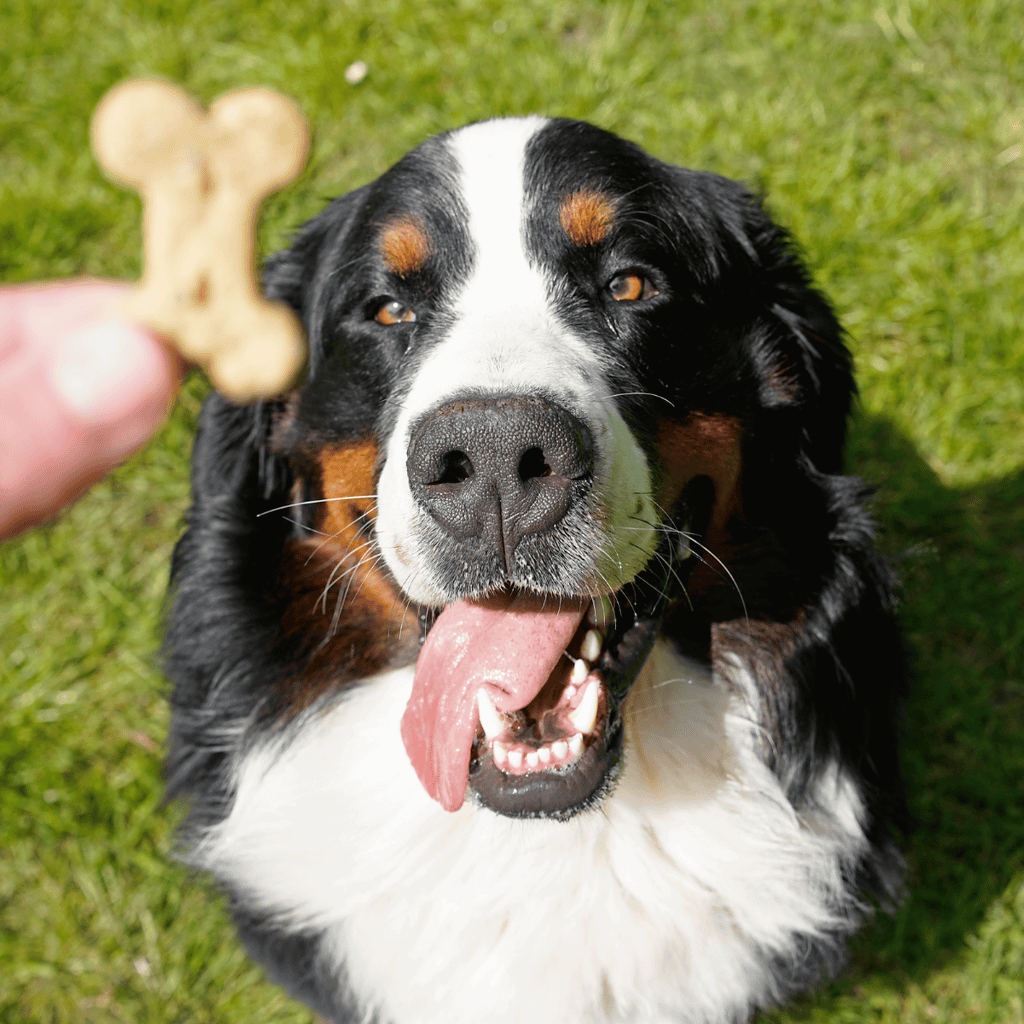
Due to their size, these dogs may face joint issues, so supplements like glucosamine and chondroitin could help, but a vet’s advice is necessary. The diet should include meat, minimal fillers, and healthy snack options. It is essential to monitor and adjust their meal portions according to life stages and consult a vet for personalized dietary advice.
Exercise
Bernese Mountain Dogs thrive on daily vigorous activity, requiring at least an hour of exercise to remain healthy and happy. Key activities include long walks, playtime, and agility courses, which provide essential physical exercise. Additionally, they enjoy mentally stimulating tasks like puzzle toys and training sessions, along with sufficient outdoor space or urban adaptation with ample exercise.
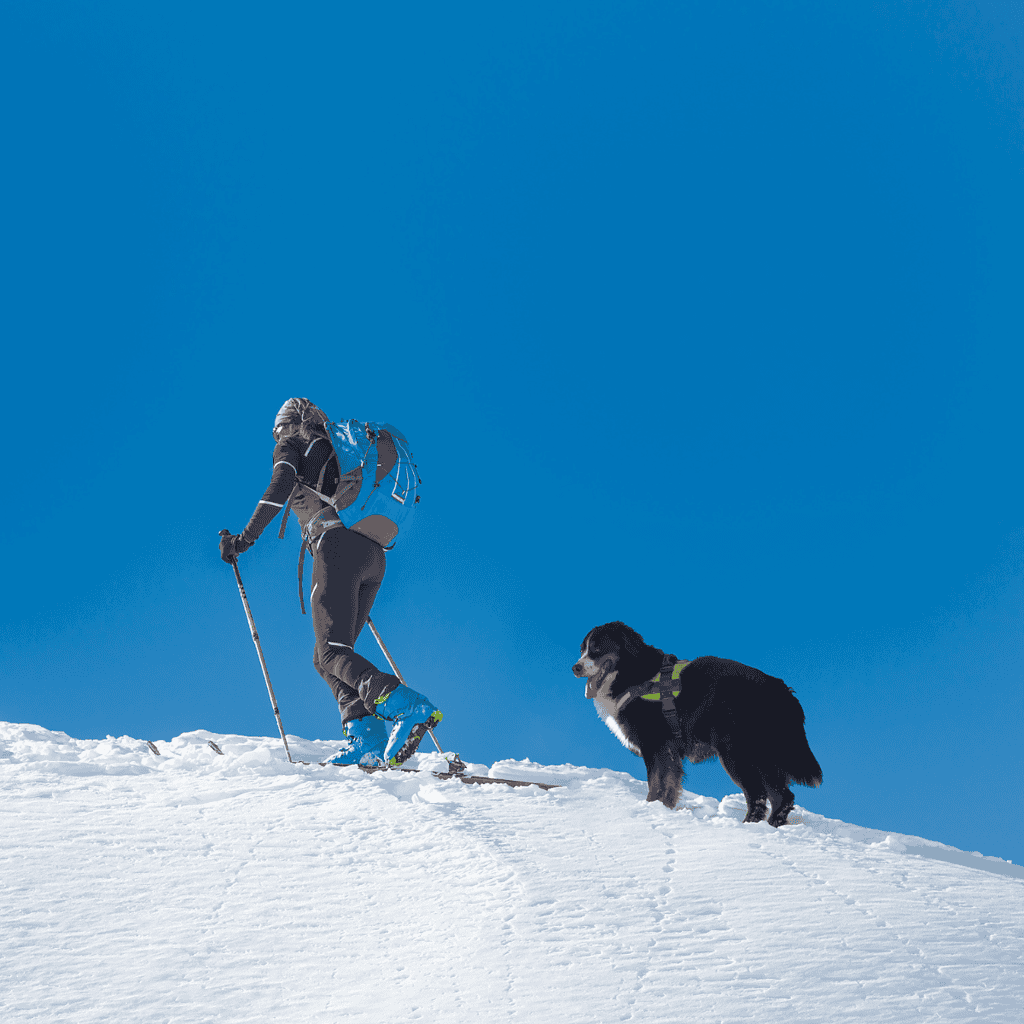
Participating in herding events, agility trials, and flyball caters to their intelligent and active nature. A mix of physical and mental stimulation prevents boredom and destructive behavior. Maintaining a balanced exercise regimen, including daily long walks, regular playtime, several agility courses per week, and daily mental challenges, is crucial.
Training
Bernese Mountain Dogs are intelligent and eager to please, which makes training enjoyable. Proper training is crucial to prevent them from becoming unmanageable due to their size. Positive reinforcement, particularly praise and affection, is most effective and helps avoid weight gain by minimizing the need for treats.
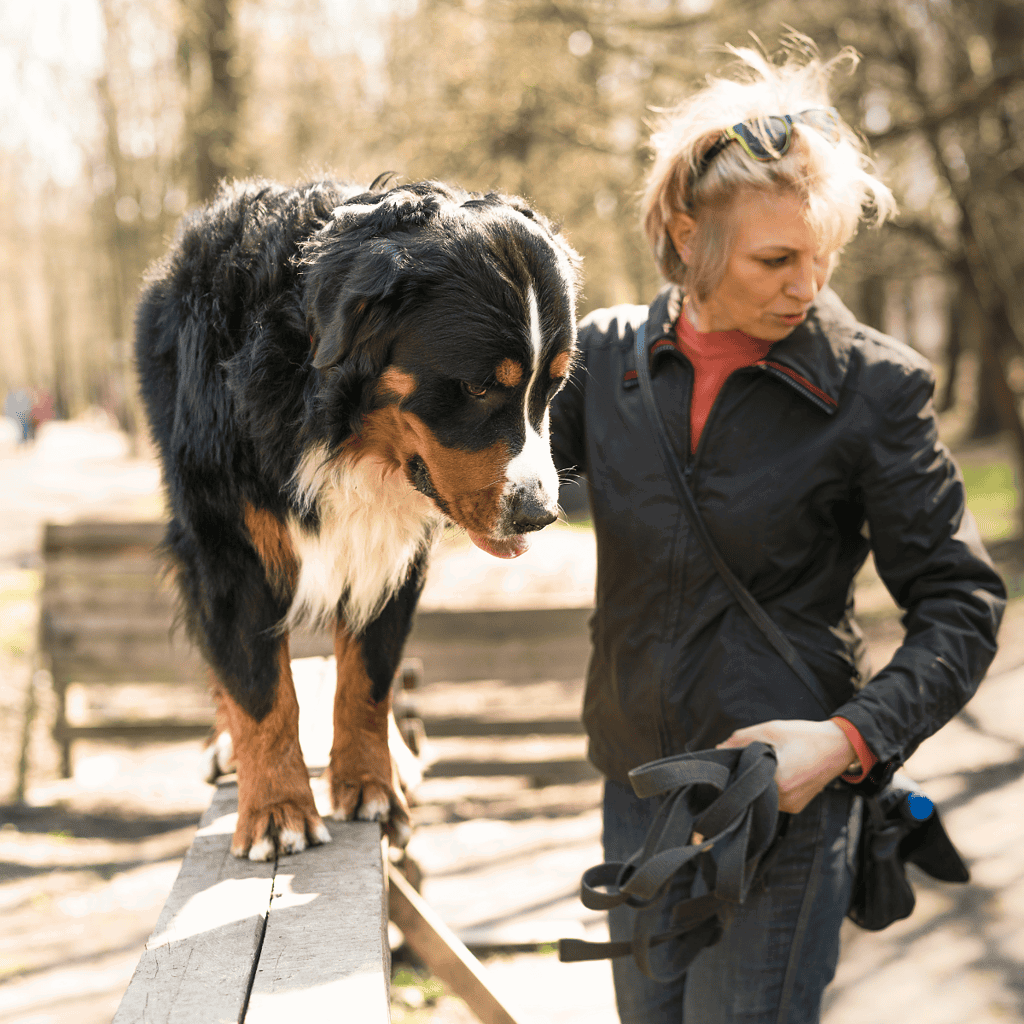
Though Bernese Mountain Dogs may sometimes be stubborn, consistent, firm, and confident handling can manage this behavior. Socialization is equally important as obedience training. Exposing them to different environments and people is vital for developing well-adjusted and confident dogs.
Grooming
Bernese Mountain Dogs possess a thick, double coat designed for cold climates, resulting in significant shedding, particularly during warmer months. Managing this shedding requires regular grooming efforts. Brush their coat several times a week to maintain control over shedding, with an increased brushing frequency in summer to reduce loose fur. Baths are infrequent and only needed when the dog appears dirty.
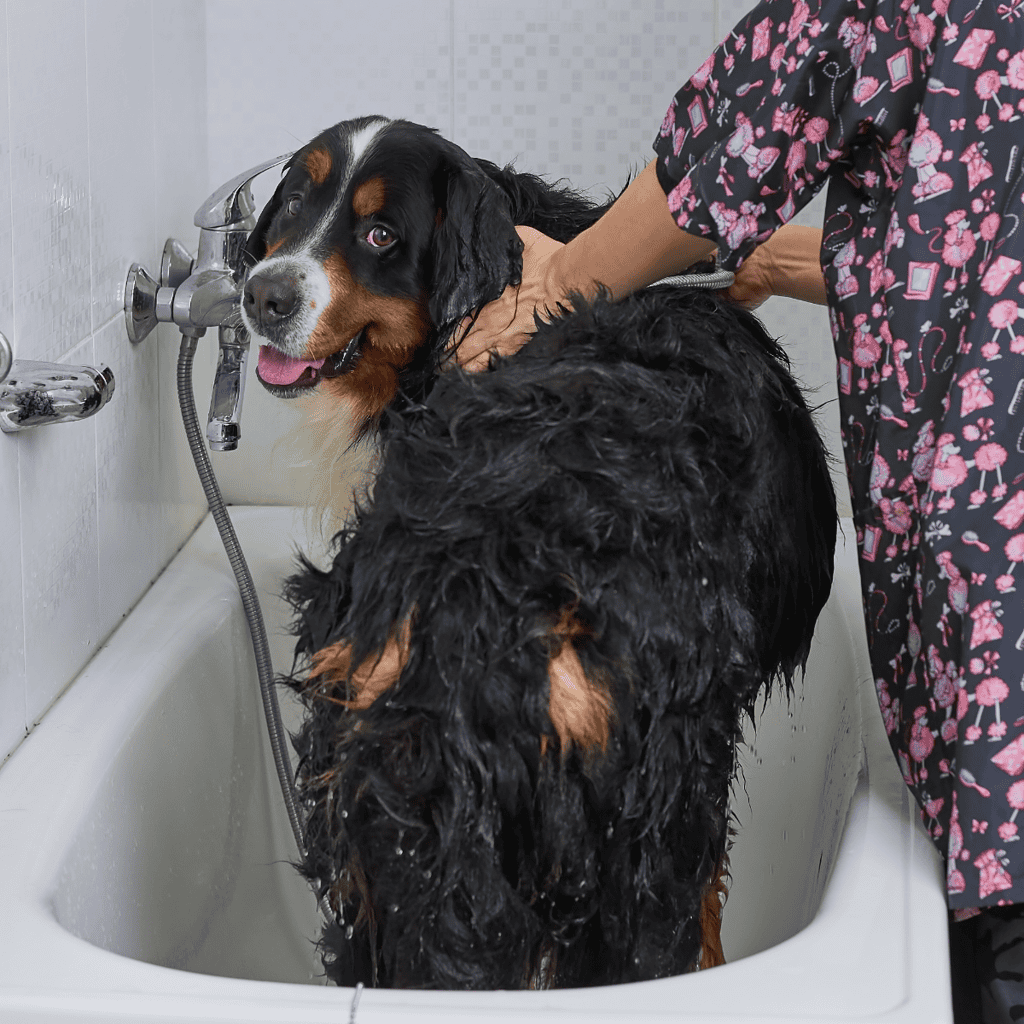
In addition to coat care, keeping the dog’s ears dry is crucial to prevent infections, as moisture can lead to complications. Other essential maintenance tasks include daily teeth brushing to ensure dental hygiene and trimming the dog’s nails to avoid overgrowth and discomfort, ensuring the dog’s overall well-being and comfort.
Male Vs. Female
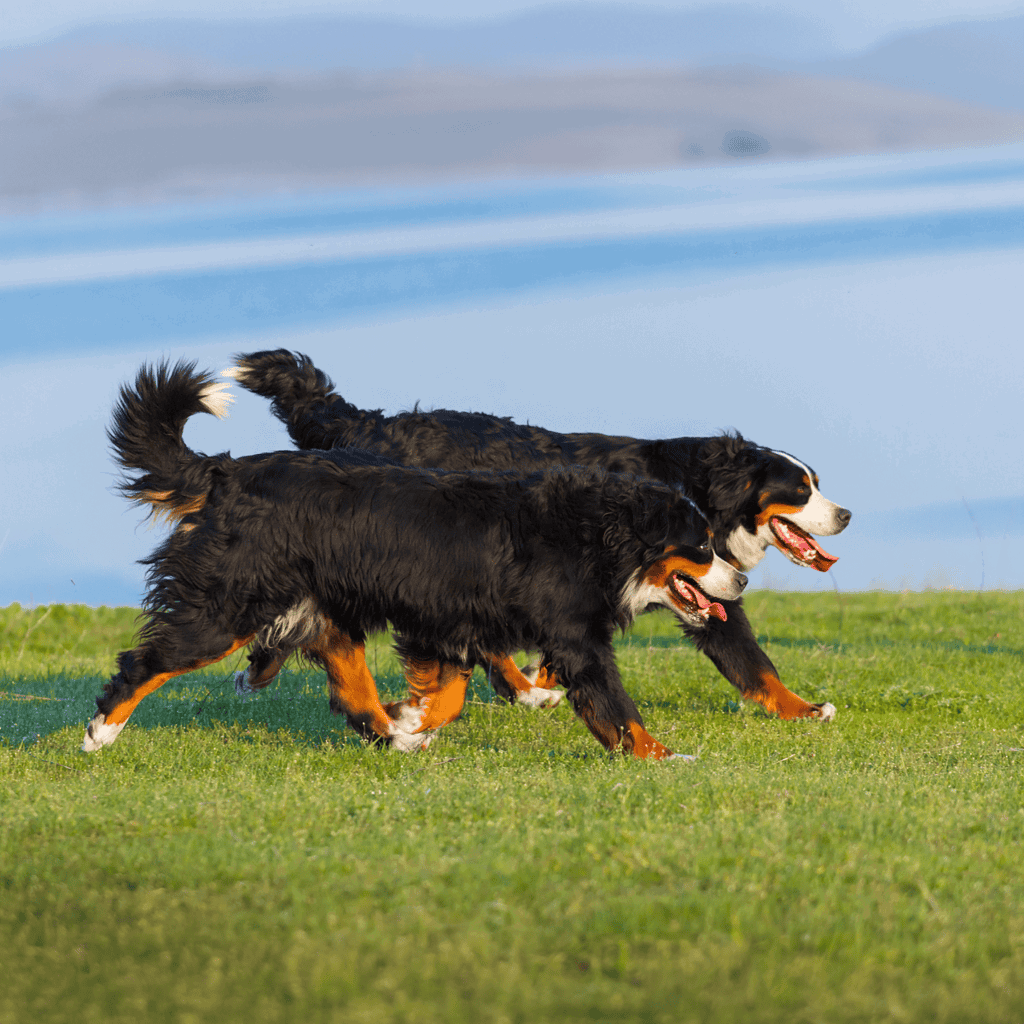
Male Bernese Mountain Dogs are typically larger and more affectionate, while females mature faster and are more independent. Both genders maintain puppy-like behavior until the age of 3 or 4. Spaying or neutering can help moderate behaviors and extend their lifespan.
Fact #1:The Breed Hails From Bern
The Bernese Mountain Dog hails from Bern, Switzerland, a region celebrated for its breathtaking landscapes. This setting was perfect for cultivating strong, adaptable working dogs. Bernese Mountain Dogs excelled in cattle herding among the four Swiss Mountain Dog varieties, displaying remarkable strength and endurance.
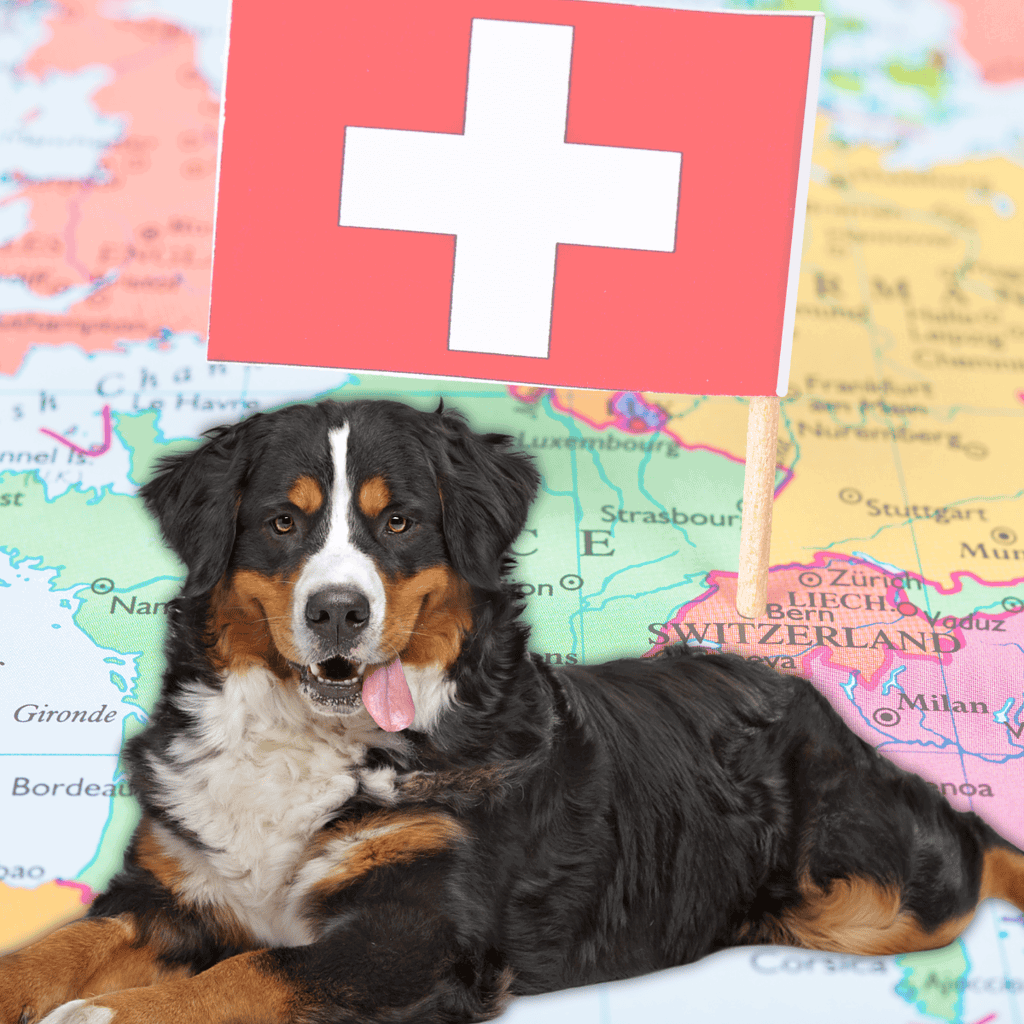
These dogs significantly contributed to Switzerland’s dairy industry, a cornerstone of chocolate and cheese production. By aiding in cattle herding, they played a vital role in ensuring the success of dairy operations. Consequently, Bernese Mountain Dogs were recognized as working dogs essential to Switzerland’s agricultural achievements.
Fact #2: They Come in Two Standard Colors
Bernese Mountain Dogs are distinguished by their eye-catching coat colors, predominantly recognized for their black, rust, and white coloration. The classic pattern includes a black base with rust markings on the cheeks, over the eyes, and on the chest. The breed standard also acknowledges a black, tan, and white variation, where the rust marks may appear more golden or tan, maintaining a similar overall pattern.
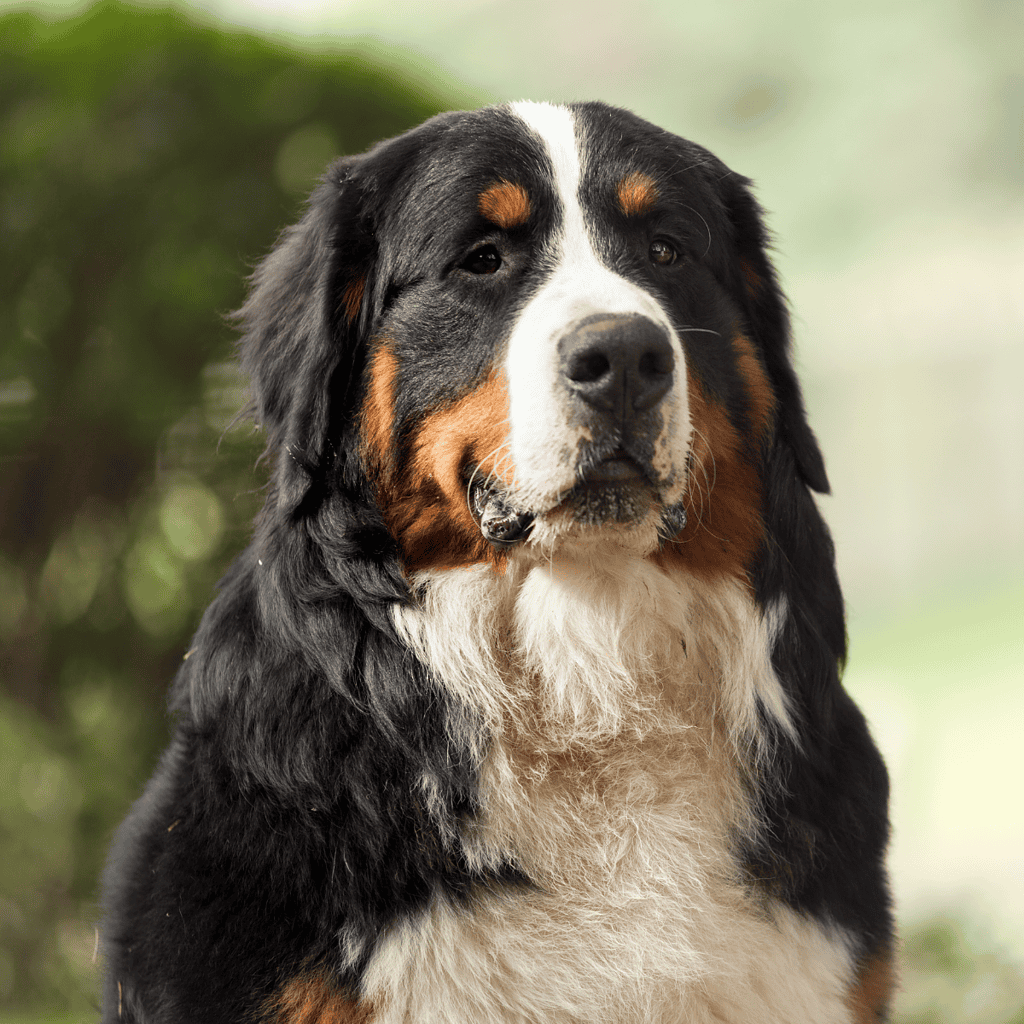
The iconic tricolor pattern is a hallmark of the breed, with both color variations featuring characteristic white markings such as a face blaze, a white chest, and white-tipped paws. These two color standards help maintain the breed’s distinctive and cohesive appearance.
Fact #3: Berners Were Bred to Be All-Purpose Farm Dogs
Bernese Mountain Dogs, also known as Berners, have a storied history as versatile farm dogs in alpine regions. Farmers relied on their strength and versatility for various tasks, such as pulling carts filled with goods to market and guarding flocks to ensure the safety of the livestock, thanks to their size and strength.
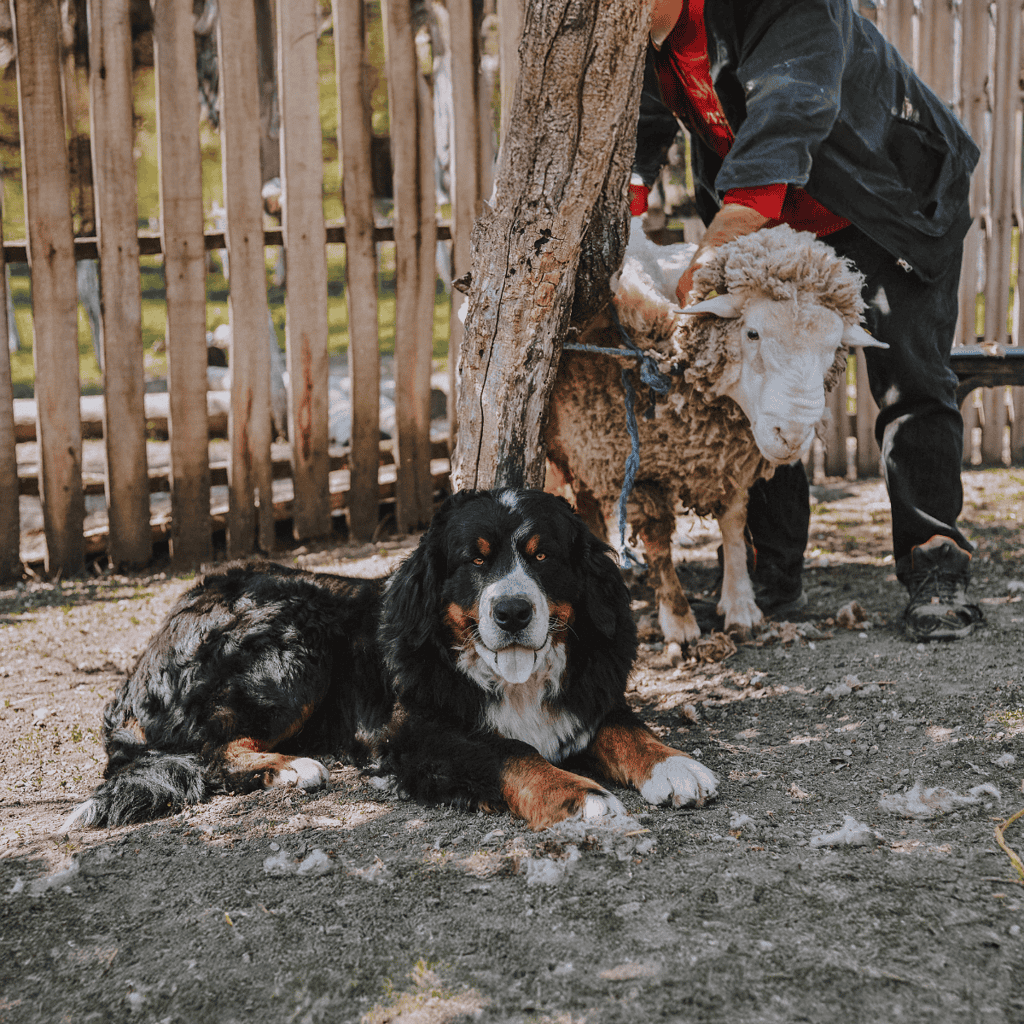
Even today, Berners demonstrate their versatility, often seen in dog shows within the working group category. This may surprise some owners who view them as family pets. With their innate working abilities, they can still take on roles such as guard dogs or service animals. Their adaptability contributes to their popularity as pets.
Frequently Asked Questions
What is the average weight range for a Bernese Mountain Dog?
Adult male Bernese Mountain Dogs typically weigh between 85 and 110 pounds, while females usually weigh between 70 and 95 pounds.
What personality traits are typically seen in Bernese Mountain Dogs?
Bernese Mountain Dogs are known for being affectionate, loyal, and gentle. They are also intelligent and good-natured, making them great family pets.
How long do Bernese Mountain Dogs generally live?
The average lifespan of a Bernese Mountain Dog is 6 to 8 years. Some may live longer with proper care and a healthy lifestyle.
What are the standard size dimensions of a Bernese Mountain Dog?
Adult males stand between 25 and 27.5 inches tall at the shoulder, while females typically measure between 23 and 26 inches.
What variety of colors do Bernese Mountain Dogs come in?
Bernese Mountain Dogs are tricolored, featuring a combination of black, white, and rust. The black coat is predominant, with white accents on the chest and rust markings on the legs and face.
How often do Bernese Mountain Dogs require grooming?
Bernese Mountain Dogs require regular grooming because of their thick, double coat. You should brush them multiple times weekly to reduce shedding and prevent mats.

Didn’t find what you need? Use the search!
Search our database of over hundreds of posts with up-to-date information from our experts and veterinarians.

